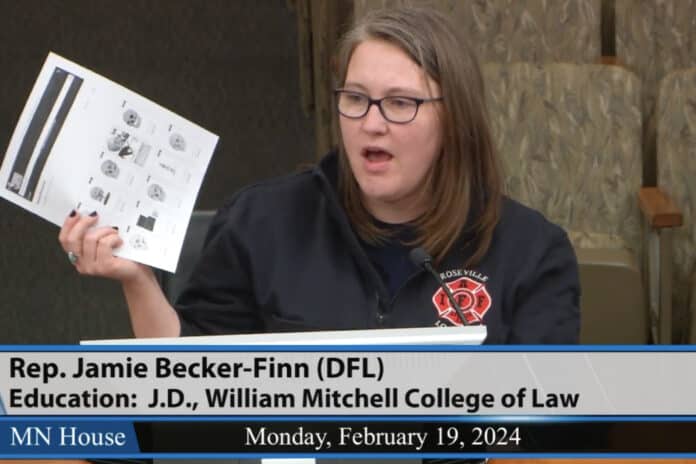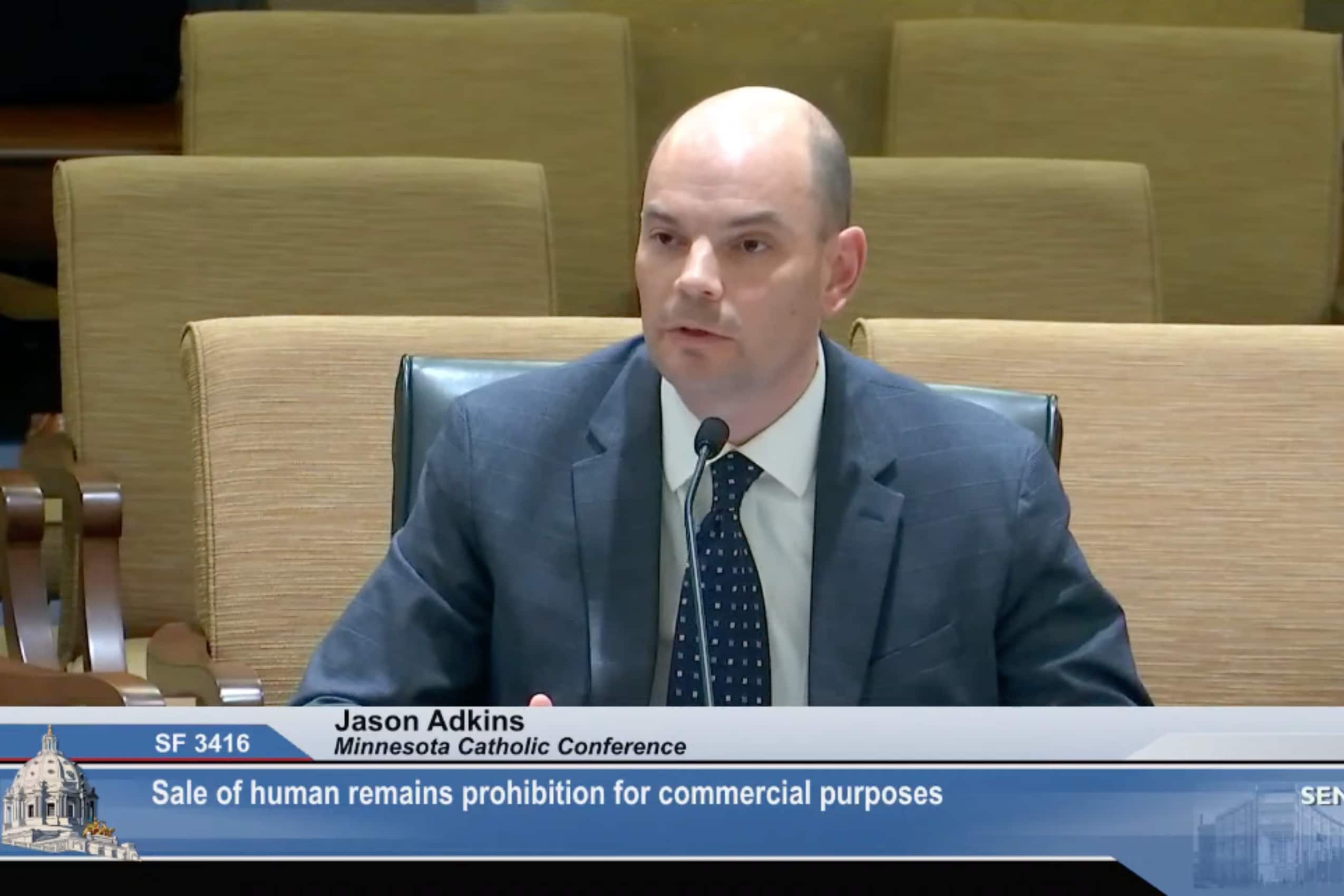
A bill that would make it illegal to sell human bones for commercial purposes in Minnesota is working its way through the legislature. DFL authors of HF3490/SF3416 hope it will pass before a traveling “Oddities and Curiosities” expo they say is known to sell skulls and other calcified human remains makes it way to Minneapolis this spring.
But some Republican lawmakers believe the language of the legislation doesn’t go far enough.
Last Monday, the Senate Judiciary and Public Safety Committee advanced the bill on a divided voice vote and sent it to the Senate floor. Objections came from Republicans who contested the bill, sponsored by Sen. Bonnie Westlin, DFL-Plymouth, was too narrow in scope.
“This bill appears to protect human remains. However, the limitations and exceptions in the bill, in some cases, make it the opposite,” said Sen. Warren Limmer, R-Maple Grove.
Language of the bill would create a new criminal statute making it a felony to sell the “calcified portion of a dead human body, not including isolated teeth; the cremated remains of a dead human body deposited in a container or discrete feature; or the hydrolyzed remains of a dead human body deposited in a container or discrete feature.”
The language of the bill allows for exceptions if the bones are used for medical, health or scientific-related purposes or for law enforcement training.
Westlin said she’s carrying the bill in the Senate at the request of Rep. Jamie Becker-Finn, DFL-Roseville, who is the chief author of the House version. Last month a House committee voted to advance the bill on a divided vote after one member, Rep. Ann Neu Brindley, R-North Branch, expressed concerns.
“My concern is that by specifically not including other tissues and organs (in the language of the bill) there could be a legal interpretation that that is allowable under this law,” Neu Brindley said during the Feb. 19 hearing on the legislation.
Becker-Finn said she is willing to have further conversations with legislators and others concerned about the possibility that human organs and other tissue-based remains are being sold for commercial purposes but said the people she’s spoken with in the medical and funeral home industries have said they don’t believe that’s the case.
“For myself as a Native person, there’s a long history of Native remains and bones being displayed, sold, brokered, and otherwise used, I guess, as entertainment, as well as collector purposes,” Becker-Finn said during the Feb. 19 hearing on the bill. “Obviously, I find that commodification of a human being reprehensible, and I hope that we all would.
“You can’t prove a negative,” Becker-Finn added. “In all the conversations we’ve had with folks, nobody is aware of it (human organs or soft tissue being sold commercially) happening.
“We narrowed the language (in the bill) to calcified remains because we knew if it was more than that we would be having even bigger conversations that would be more complicated and make it harder to actually land on language about the thing that we know is happening,” Becker-Finn continued.
During the Senate hearing on the bill last Monday, Sen. Limmer offered an amendment that would have expanded the scope of the bill to prohibit commercial sales of other types of human remains. All six Democrats in the committee voted down that amendment, with four Republicans supporting it.
The committee then voted to recommend the bill to the Senate floor on a divided voice vote.
Debate over scope of growing, unregulated industry
The Minnesota Funeral Directors Association submitted written testimony in support of the legislation, saying the bill “provides simple yet effective protections: prohibiting the sales of human remains, with reasonable exceptions for established and publicly beneficial practices. This approach strikes the appropriate balance allowing legitimate uses while upholding basic human dignity.”
But the Minnesota Catholic Conference, which represents the public policy voice of the Catholic Church in Minnesota, expressed criticism over the bill, saying its limited language “takes a step backwards” on the broader issue of stopping the commodification of human remains altogether.

By specifically limiting prohibition of sales of human remains for commercial purposes to bones and not to other body parts, “what we are clarifying in law, in which Minnesota law is currently silent, is that a whole trade, in fact the most lucrative portion in the trade of body parts, is still perfectly legal,” said Jason Adkins, executive director for the Minnesota Catholic Conference, during testimony on the bill.
“Although the bill limits and makes illegal the sale of human bones in a very narrow context, that is the occasional oddity shop, the macabre person who wants to by a bone or skull or whatever, it actually makes it perfectly legal and clarifies it’s perfectly legal to do so in a wider variety, in a broader variety of contexts,” Adkins continued. He cited a 2017 investigative reporting series from Reuters on “The Body Trade” in America, involving sales of human remains for profit, partly due to lack of legal clarity on the growing industry.
Becker-Finn responded to those concerns.
“I think the main thrust of the Catholic Conference (testimony) is actually about a separate but related issue, which is obviously disturbing, [I] also would be in favor of moving that forward,” Becker-Finn said in the House hearing on the bill last week. “The reason this bill is solely focused on bones is because that is actually happening right now.”
Hank Long
Hank Long is a journalism and communications professional whose writing career includes coverage of the Minnesota legislature, city and county governments and the commercial real estate industry. Hank received his undergraduate degree at the University of Minnesota, where he studied journalism, and his law degree at the University of St. Thomas. The Minnesota native lives in the Twin Cities with his wife and four children. His dream is to be around when the Vikings win the Super Bowl.











